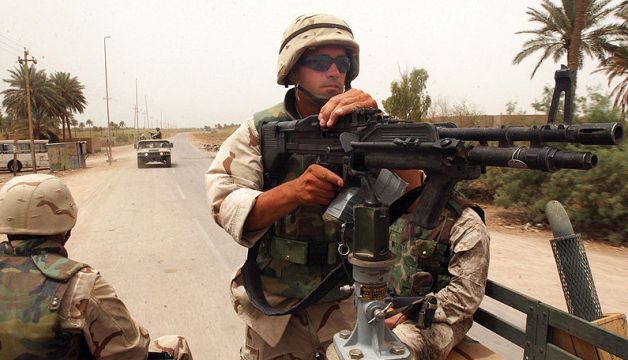The news said it was supposed to be quick. A matter of weeks, according to some within the government.
It seemed right from where I was sitting on March 19, 2003. I was two months from high school graduation when the bombs fell over Baghdad. I snuck downstairs at night to watch bombs explode in hazy night-vision green on CNN.
My father left the Navy when I was young, but I can remember the stretches of time that he left for duty across the country. The military was practically a family tradition, and I wanted to take part in my generation’s fight. I remember feeling a sense of urgency, that the war might be over by the time I had a chance to fight it. My urge to enlist was outmatched by my years.
No one could tell at the time, but the war wasn’t going to end soon. It managed to stretch into the fall of 2003 and lead to stability operations, then counterinsurgency, and finally a transition to the Iraqi government late last year.
I joined the Army in 2004, and for a good chunk of that time, the war operated in the background, a far flung destination that I trained for every day. It was strange to know exactly when and where I’d be deploying. It wasn’t quite like the way it happened in movies, or for that matter, those who took part in the invasion. Their experience was a confusing roar into Baghdad and the uneasy feeling of insurgency rushing to fill the void of a standing army.
My experience was in the middle of a deployment cycle, like a particular release of Madden video game.
Iraq had my name on it since I was five years old and watched the first Gulf War unfold with my parents. I don’t believe in destiny, but events from that war had consequences more than a decade later, on a collision course with my desire to serve. But I couldn’t be more oblivious as I watched Baghdad light up twice in twelve years, never knowing that one day I’d sleep in buildings long destroyed by American missiles.
Topics in this story
More Stories
Summer Sports Clinic is a rehabilitative and educational sporting event for eligible Veterans with a range of disabilities.
Report examines the input of over 7,000 women Veterans: They are happier with VA health care than ever before.
Veterans and caregivers, you can help shape the future eligibility requirements for the VA Caregiver Support program.







